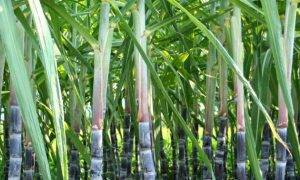Indonesia Government developing financial and incentive policies to support commercialisation of biodiesel

The Indonesian government is enhancing financial incentives and policies to promote biodiesel commercialization, focusing on partnerships between smallholder farmers and biodiesel producers. Key ministries, including Energy, Agriculture, and Economic Affairs, are involved in the upcoming B100 biodiesel initiative.
The government and relevant stakeholders are actively developing financial incentives and policies to promote the commercialization of biodiesel, particularly by fostering partnerships between smallholder and independent farmers and biodiesel producers, reported Antara.
Edi Wibowo, the Director of Bioenergy at the Ministry of Energy and Mineral Resources, emphasized the significance of sustainable biodiesel development, especially with the upcoming implementation of B100. He noted that the biodiesel initiative will involve not just his ministry, but also the Ministry of Agriculture, the Coordinating Ministry for Economic Affairs, and other key players, including palm oil companies and farmers.
“Biodiesel production heavily depends on palm oil as its main raw material, making the involvement of both smallholder and independent palm oil farmers essential,” Wibowo stated.
He further highlighted the need to strengthen collaborations between farmers and companies to ensure that the biodiesel program benefits not only the industrial sector but also directly enhances the livelihoods of palm oil farmers.
Mula Putra, the institutional coordinator at the Directorate of Oil Palm and Various Palms of the Ministry of Agriculture, indicated that the government plans to enhance human resource capacity through apprenticeships and training for farmers.
Efforts will also be made to bolster data collection via the Cultivation Registration Certificate to improve the trade of oil palm fresh fruit bunches (FFB) and increase farmers’ income by integrating intercropping, animal husbandry, and the utilization of palm oil waste.
Putra expressed confidence that these initiatives could elevate the productivity of smallholder oil palm plantations to 30–40 tons of FFB per hectare, achieving a yield of 23–25 percent. “This increase is expected to support the palm oil-based biodiesel program and enhance the welfare of Indonesian palm oil farmers,” he added.
Source Link : https://bioenergytimes.com/government-developing-financial-and-incentive-policies-to-support-commercialisation-of-biodiesel/















